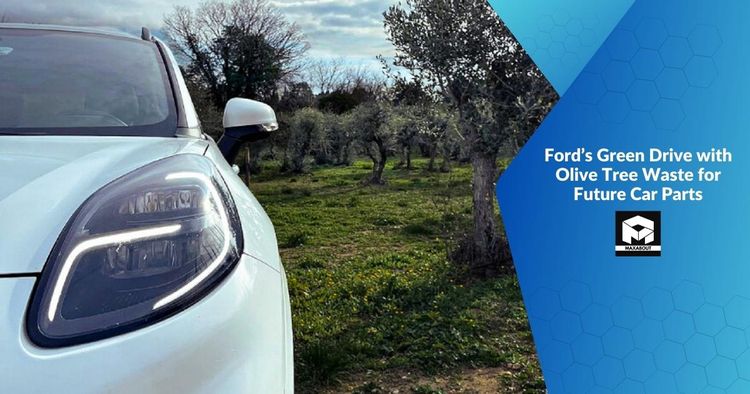Introduction
Every year, as olive trees undergo pruning a substantial 7 million tons of waste is generated. Recognizing the environmental challenge posed by this considerable waste Ford engineers based in Cologne embarked on a pioneering research project. Their aim was audacious to investigate the creative recycling of rubbish from olive trees into valuable prototypes for use in automotive components.
Turning Waste into Innovation
A ground-breaking discovery was made by Ford's engineers during their committed search for sustainable solutions. Not only did auto parts made from olive tree waste show remarkable endurance but they also suggested a radical change in the automobile sector. A possible path that could lead to a major reduction in the use of traditional plastics in the production of vital vehicle components is the creation of lighter-weight auto parts. Achieving Ford's overarching objective of raising the percentage of recycled and renewable materials in its vehicles requires innovation like this one.
COMPOlive Project: A Demonstration of Sustainability
The trial which was a part of the wider COMPOlive project, was an important way to show the impact and viability of using materials from renewable and recycled sources in vehicle parts. For this specific trial, waste materials were meticulously sourced from olive groves in Andalusia, Spain, a region globally renowned as the highest producer of olive oil. The resulting prototype parts were crafted with precision utilizing a carefully balanced blend of 40% olive tree fibers and 60% recycled polypropylene plastic. To form these materials into the exact shapes needed for auto parts, a complex procedure involving heating and injection moulding was applied.

Ford's Legacy of Sustainability
Ford's commitment to incorporating sustainable materials extends beyond the current olive tree waste project. The company boasts a rich legacy of researching and implementing innovative materials in its vehicles. Notable examples include the development of industry-first soybean-based foam seats and headrests, the integration of post-consumer recycled materials (including materials from yogurt cups) in the Ford Mustang Mach-E frunk insert, and the pioneering use of recycled ocean plastic in wiring harness clips for the Ford Bronco Sport.
The Road to Better: Ford's Holistic Environmental Commitment
Ford's dedication to environmental conservation goes beyond specific projects it includes a broader, all-encompassing plan called "The Road to Better." Ford's steadfast dedication to creating a more just, inclusive, and sustainable transportation future is demonstrated by this project. The ultimate goal is to establish a society in which each person has the freedom to travel about and follow their aspirations while minimizing their negative impact on the environment. Ford is making quantifiable strides towards its lofty environmental sustainability goals which is opening the door for a better, greener, and more ecologically sensitive future for the automotive sector.

